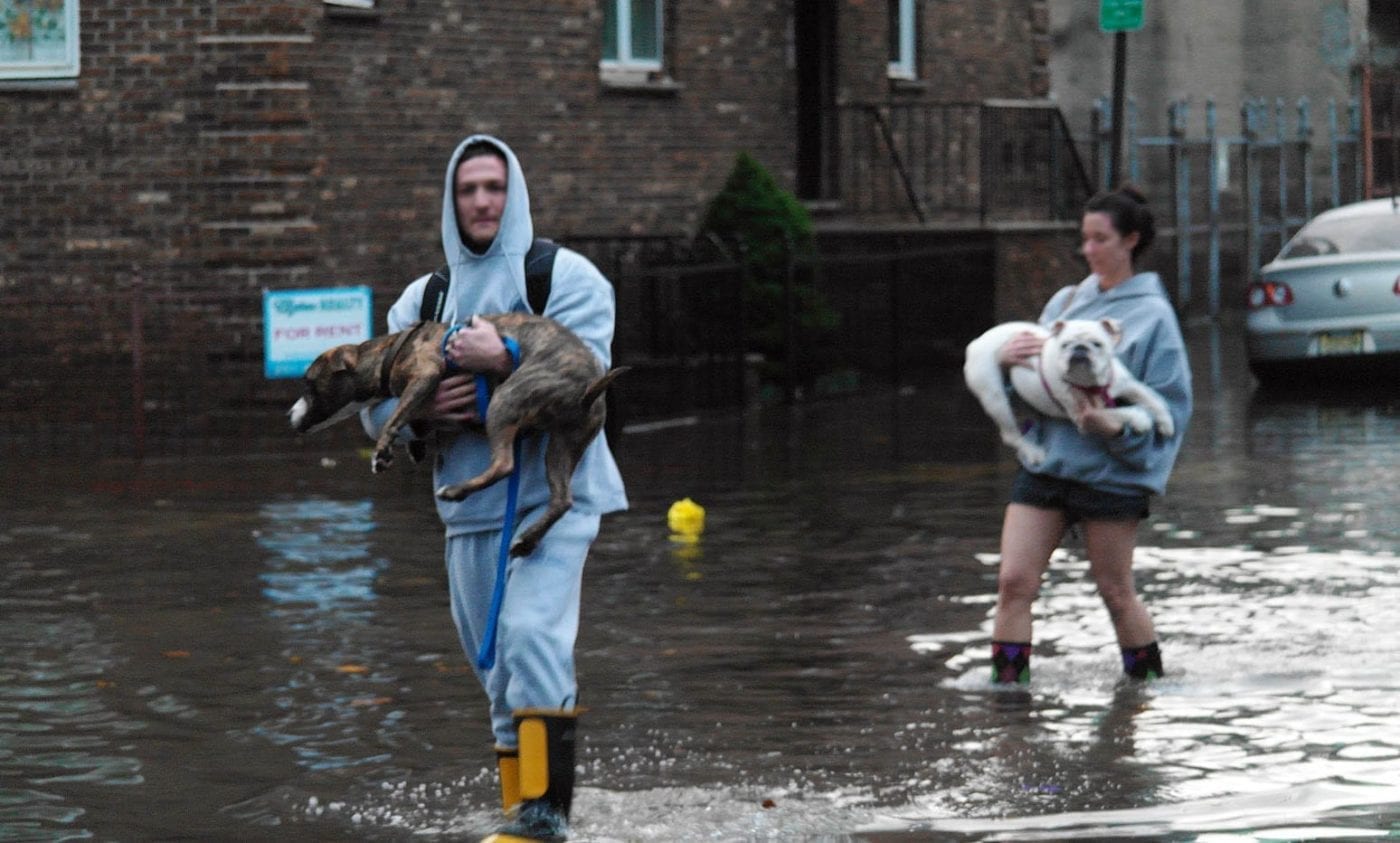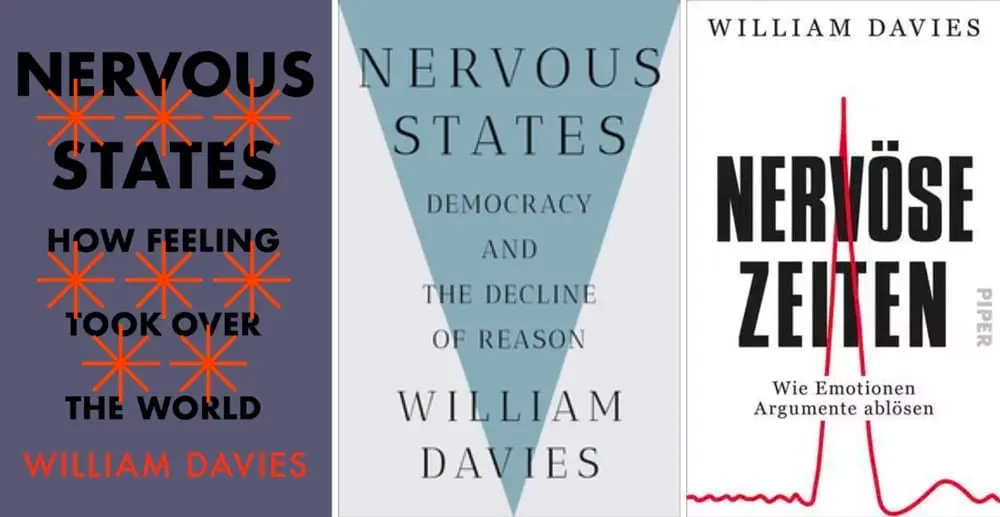‘This is not an elitist issue’—Navigating political divides, fast and slow
There is a palpable sentiment across many liberal democracies that the status quo is not sustainable, and a large constituency willing to credit and follow leaders who can express this feeling. Yet, too often, the overwhelming popular desire for political action and mass mobilisation finds its outlet in a drift towards the far-right, Will Davies writes. The political task is to feel our way toward less paranoid means of connecting with one another.

In a typically stirring speech to Congress last month, Alexandria Ocasio-Cortez defended the Green New Deal against the charge of Republicans that it is an ‘elitist’ policy. What was thrilling and brilliant about ‘AOC’s’ rhetoric was that it anchored environmental politics firmly in the lives of ordinary people. “This is not an elitist issue”, she said, “this is a quality of life issue”. Listing various examples of Americans being harmed by pollution and flooding, she got to the real nub of the matter: “people are dying”.
For me, the speech immediately resonated with many of the themes of my recent book, Nervous States. The original provocation for the book was the apparent crisis of authority that hovered around expertise in liberal democratic politics. As manifest in the election of Donald Trump, in Brexit and in various populist movements around Europe, it appeared that the democratic reaction against ‘liberal elites’ and technocrats was also engulfing independent sources of objective knowledge, weakening the status of scientific experts in public life.
While surveys on trust suggest that scientists (including climate scientists) have not experienced any decline in credibility, it seems clear that the political implementation of expert-led policies, together with the media reporting of scientific knowledge, are both viewed with great suspicion. Indeed, evidence has recently been published showing a correlation between patterns of anti-vax movements in Europe and patterns of populist support. There is an undoubted risk that the rise of anti-liberal political leaders is adding momentum to conspiracy theories and anti-environmentalist politics.
This represents an acute dilemma. Those offering full-throated defences of ‘Western reason’ and apolitical expertise often risk exacerbating political and cultural divides, implying (or stating explicitly) that anyone who disputes the facts is stupid, ill-informed or ill-educated. There is a failure to engage politically, let alone to understand the roots of alienation and anger. On the other hand, if politicians and policy-makers focus too much on empathising with those who reject policy expertise, then they can end up ignoring the objective reality of social and environmental crises.
How do we navigate this dilemma? In writing Nervous States, I came to a couple of conclusions on this, both of which I think AOC is alert to and articulates brilliantly. The first thing is to recognise that politics has become a matter of life and death, and of physical suffering, in ways that is forgotten about during times of peace and material prosperity. The movements that define our times have an existential substrate. Black Lives Matter and Extinction Rebellion make this explicit, but it’s also worth noting how much divergent health and life expectancy maps onto political divides. The equal right to life was, however, the starting point of liberalism, back in the mid-17th century, when modern government was conceived as a means of providing people with physical safety and the satisfaction of basic needs.
Where liberalism forgets this origin, and becomes fixated on abstract numbers and procedures, it comes to appear distant and ‘elitist’. By reconnecting with basic human needs—ultimately with the need and right to live in an inhabitable environment—liberal democracy rediscovers its vitality and passions. There is a general sense that ‘centrist’ politics is dead, and bi-partisanship belongs to the old era of Blairite and Clintonite ‘triangulation’. And yet, in her speech, AOC pointed to an entirely different, more fundamental basis for consensus: the rescue of a sustainable, liveable, habitat “is serious. It should not be a partisan issue.” She was appealing for bipartisanship, but as a matter of extreme ecological and human urgency, not as a matter of traditional civility or expert authority.
Secondly, we need to understand how politics right now is riven by problems that move at very different speeds. The crucial quality of political leadership is to correctly distinguish those things that move too fast, and need slowing down (such as our media cycle), from those things which need radically speeding up (such as our response to climate change). Equally, much of the alienation and resentment towards ‘liberal elites’ stems from a sense that they ultimately favour the status quo, and that nothing urgently needs to change. Those whose job involves establishing, checking and reporting facts—including scientists and journalists—risk appearing ‘out of touch’ or even ‘smug’, seeing as this work is invariably slow and laborious, and by the time it is done, the world has moved on.
There is undoubtedly a palpable sentiment at large across many liberal democracies right now that the status quo is not sustainable, and a large constituency willing to credit and follow leaders who can express this feeling. The question is how to build bridges between the socio-economic dimension of this politics (that levels of deprivation, stress, debt and inequality are intolerable), and the ecological realities of the situation. Too often, the overwhelming popular desire for political action and mass mobilisation finds its outlet in nationalism and a civic drift towards the far-right.
Resisting this won’t be possible simply through offering more evidence-based policies or measured responses from the centre ground. Somehow, the feeling that time is short, that action is urgent, needs to be recognised and respected. If it can be channelled towards the areas of environmental politics which are equally urgent and time-sensitive (most obviously climate change, where the IPCC tells us there is less than a dozen years to act decisively), then it might be feasible to imagine an environmentalism that is genuinely popular in its reach and implications. AOC’s anger at the charge of ‘elitism’, from a political party representing fossil interests, and passionate appeal to the lives and health of average Americans, points to how this kind of politics can be pursued.



